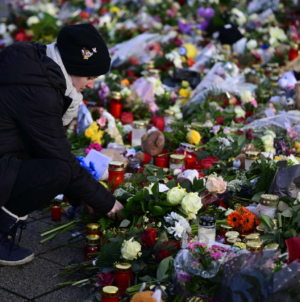-
Tom Brady breaks down Lamar Jackson's TD pass to Mark Andrews to give Ravens lead vs. Steelers | NFL Highlights - 18 mins ago
-
Trump’s deportations on a collision course with California’s economy - 50 mins ago
-
What stores are open on Christmas Day 2024? - 50 mins ago
-
Tiger Woods and son Charlie share the lead at PNC Championship - about 1 hour ago
-
Food tracking just got lazy — in the best way possible — with this wearable - about 1 hour ago
-
German Christmas market attack suspect remanded in custody - about 1 hour ago
-
‘Massive’ Ukraine Drone Attack Hits Russian Fuel Depot - 2 hours ago
-
Who are the 10 greatest linebackers in NFL history? - 2 hours ago
-
Year in Review: What Moment Defined 2024? Newsweek Writers’ Verdicts - 2 hours ago
-
Ohio State, Ryan Day silence critics with resounding win over Tennessee - 2 hours ago
The 2024 Events That Could Change the World
2023 was a year of events that arguably mark significant changes in an ever-shifting world: another war in the Middle East, unprecedented extreme weather events, the first new NATO member to border Russia since 2004, a new British monarch for the first time in seven decades, and a banking crisis that led to the second-largest banking collapse in U.S. history.
With the war in Ukraine set to continue into its third year, the Israeli ground offensive in Gaza ongoing, and technological advances coming in leaps and bounds while the climate crisis worsens, it doesn’t take a soothsayer to foresee some things that could irrevocably alter the world as we know it.
As 2024 begins, Newsweek asked experts about some of these possible world-changing events, and what effects they could have were they to happen in the next 12 months.
Newsweek/Getty
“Geopolitical uncertainty is going to remain elevated,” Liz Ann Sonders, chief investment strategist at financial advisory firm Charles Schwab, told Newsweek in a press call on the economic outlook, “and I think at least in the short term that can be a volatility driver and is in part one of the reasons why we think we’re in a different secular environment than the Great Moderation,” a reference to a period of low economic volatility from the mid-1980s to at least 2007.
The leading analyst added that “a combination of supply and demand shocks—and you add climate change into the mix—[… is] supportive of that view that we’re not going back to the Great Moderation.”
Nuclear Fallout
The threat of nuclear weapons being used in the near future is an unlikely one, experts in international relations have said, but not implausible under certain circumstances.
Mark Galeotti, an academic and author on Russian security affairs, said he didn’t see “any likelihood of nuclear conflict” in the coming year, while Nikola Mikovic, a journalist and foreign policy analyst, suggested Russia could be moved to use a tactical nuke on Ukraine.
This is something Russian propagandists allied with Russian President Vladimir Putin have previously argued in favor of: using nuclear arms with a smaller yield than strategic nukes against Ukraine’s non-nuclear military. In March, Putin announced that Moscow would build tactical nuclear weapon storage facilities in Belarus, which also borders Ukraine and is allied with Russia.
But the same propagandists have also threatened nuclear strikes on Western nations over their continued support for Kyiv, which is thought to be unlikely. In November, one pundit said that Russia would deploy nuclear weapons “right away” in the event of a conflict with NATO, while another warned nuclear war “will definitely happen” with the U.S. over Ukraine.
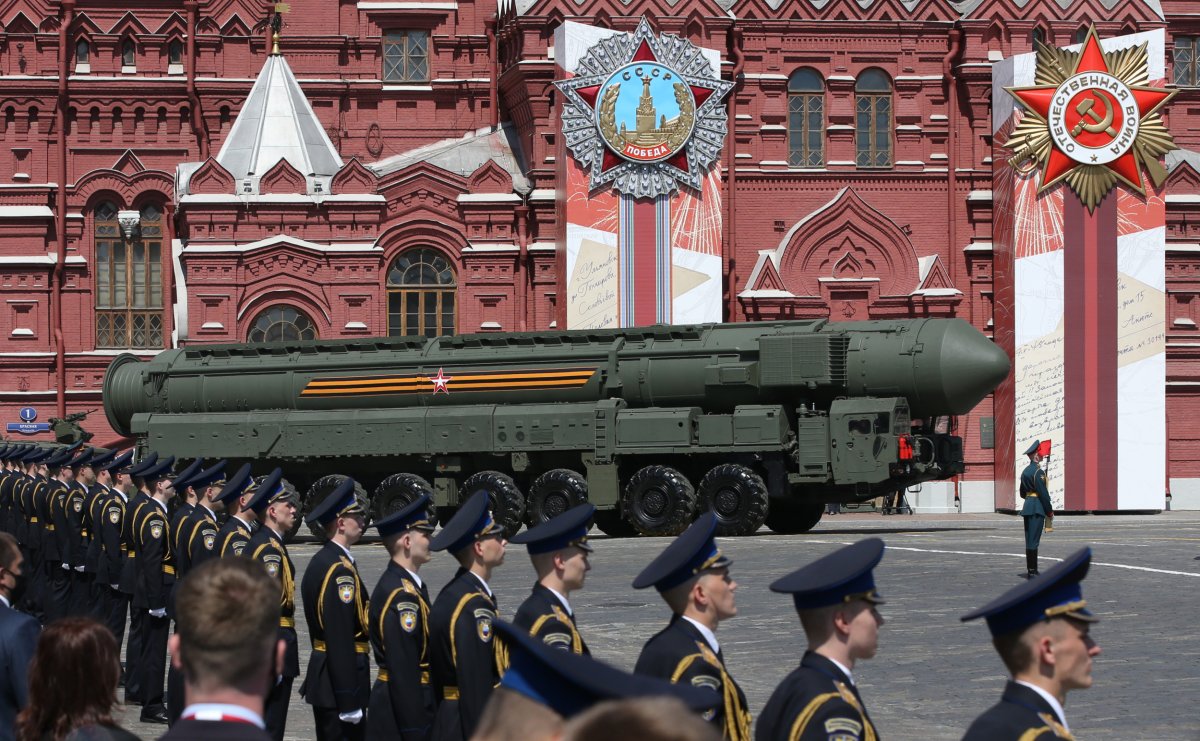
Mikhail Svetlov/Getty Images
“Zbigniew Brzezinski, former U.S. National Security Advisor, reportedly once said that while $500 billion owned by Russian elites still lie in American banks, he can’t see any chance of Russia using its nuclear potential,” Mikovic said. “Although the United States and its allies have already frozen over $300 billion in Central Russian Bank assets, children and grandchildren of Russian oligarchs and Kremlin officials continue to live and study in the West, which is why I cannot imagine Russia striking Western countries.”
However, the Serbia-based analyst suggested Russia could use tactical nuclear weapons on Ukraine, but “only if its forces suffer a major defeat that would have a serious impact on Putin’s, or his successor’s, reign.”
“Even then, it would likely be a ‘demonstration of force’ rather than a serious nuclear escalation,” he explained. “For instance, Russia could strike Snake Island aiming to scare the Ukrainian political and military leadership.”
But Mikovic said such an eventuality seemed “very unlikely at this point” as “the problem for the Kremlin is that the U.S. would almost certainly intervene, one way or another, and I don’t think Moscow is ready for an open confrontation with the U.S. military.”
The Death of Vladimir Putin
Since Russia’s invasion of Ukraine, Putin’s health has been a topic of intense—perhaps wishful at times—speculation.
While the 71-year-old recently announced he would seek a fifth term as president, it has been claimed that he was suffering from cancer, Parkinson’s disease and even dementia. In October, the Kremlin had to dismiss reports that Putin had suffered a cardiac arrest.
It has also claimed Putin has faced assassination attempts from Ukraine, which President Volodymyr Zelensky has denied though a Ukrainian intelligence chief appeared to confirm a few weeks later. For his part, Zelensky said recently that he has survived countless threats to his life.
“My suspicion is that if Putin were to die in 2024—and wild rumours notwithstanding, there is no evidence this is at all likely—then it would have a seismic effect on the system he has built,” Galeotti, director of the Mayak Intelligence consultancy and an honorary professor at University College London (UCL), said. “It is precisely that, his system, built up over 23 years of direct and indirect rule, with no real heir, no one with the authority to step into his shoes.”
“I imagine the succession would be the product of much horse-trading and coalition-building, and that tends to drag politics towards the centre,” he added but said that, regardless of Putin’s successor, even though “a post-Putin regime would seek to mend fences with the West and see what kind of a deal it can get in Ukraine,” that “does not mean an absolute surrender and withdrawal” as Ukraine might hope.
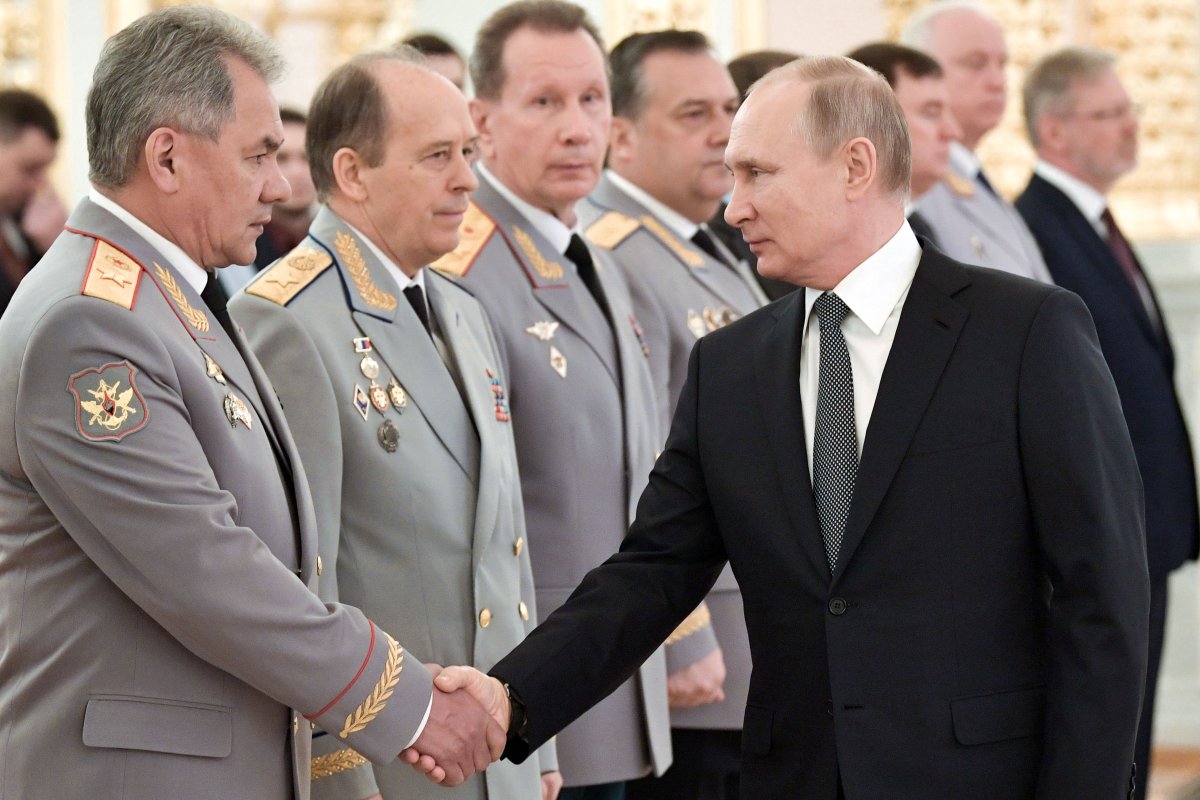
ALEXEY NIKOLSKY/AFP via Getty Images
But Mikovic dismissed the view of Putin as a new-age Russian tsar whose power structure would crumble without him, but “a manager who has to balance the interests of various influential oligarchic groups (many of whom have close ties with the West), and the so-called siloviki (the country’s security apparatus).”
He said Putin’s sudden death would “undoubtedly be a huge shock for the Russian society, but I believe it wouldn’t take too long for the ruling elite to find someone to replace him and continue implementing more or less the same policy.”
Mikovic suggested that who would win out in that power struggle would likely be a member of siloviki, rather than someone who wants to reconcile with the West, due to the ongoing war.
“If, however, ‘the party of peace’ in the Kremlin prevails—which is not very probable—then Russia would have to find a way to end the conflict in such a way that would allow the new country’s leadership to save face,” he added, which would be “easier said than done” given Zelensky’s determination to see sovereignty restored over all parts of Ukraine under Russian occupation.
Donald Trump Makes America Great Again, Again
If current opinion polls are an indication of how the coming election year will bear out, Donald Trump is on course to win the Republican Party’s nomination and will likely face Joe Biden again next November, with whom he is drawing level in recent national surveys.
But there are several question marks over his third White House bid. The former president faces several criminal cases that could prevent him from assuming elected office while fending off a lawsuit to have him disqualified from the ballot in Colorado.
“The potential re-election of Donald Trump would have repercussions around the world,” Julie Norman, a professor of U.S. politics at UCL, told Newsweek. “In the U.S., we could see challenges to the election or electoral system—especially if Trump again wins the electoral college but not the popular vote—and we’d likely see polarization exacerbated to new extremes.
“There are also concerns that a second Trump term would undermine democratic norms and institutions much more than the first term, which would have long-term repercussions for the U.S. domestically, America’s image abroad, and the future of democracy around the globe.”
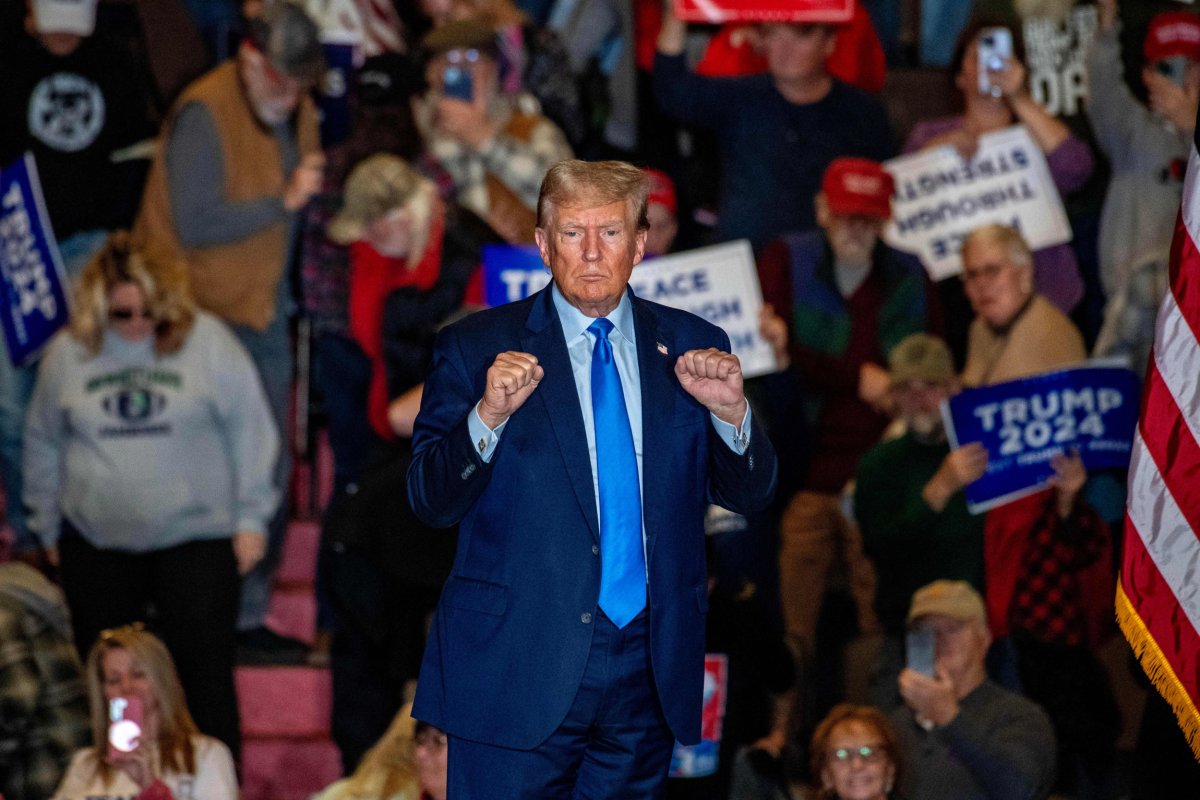
JOSEPH PREZIOSO/AFP via Getty Images
Despite Biden pledging “not to divide, but unify” the nation after winning his first term, he arguably has not done so and his re-election could also lead to greater political polarization. A Pew Research Center survey of 8,480 adults, conducted between July 10-16, found Americans are now more polarized than before, with 65 percent saying they feel exhausted and 55 percent angry with U.S. politics. The most common negative word used by respondents was “divisive.”
Norman added that on a foreign policy picture, Trump’s return to the White House would “significantly shift” America’s current postures towards Ukraine, China and the Middle East.
The former president has claimed he would end the war in Ukraine “in 24 hours,” has had a hot-and-cold approach to Beijing and has criticized the Biden administration for loosening sanctions on Iran, which has been accused of funding militants responsible for recent attacks on Israel.
“We don’t tend to put a lot of emphasis, in terms of market behavior, on things like presidential elections,” Sonder said. “On the margin they can be needle-movers, but they don’t tend to be anything more than short-term drivers. The exception is if there are major, major policy changes that are not only part of platforms—but actually could possibly come to fruition depending on the outcome.”
As well as a potential shift in American foreign policy, Trump has pledged to ban Chinese ownership of critical infrastructure, ramp up oil drilling and undertake the largest migrant deportation operation in U.S. history.
Chat GPT-3: Rise of the Machines
“The reality is that the explosion happened in 2023 and that was really about exploration,” Oz Alashe, founder of CybSafe and an expert in artificial intelligence and cyber security, told Newsweek. “2024 is widely recognized or widely expected to be about application.
“The expectation being organizations…will double down on applying artificial intelligence—particularly generative AI, but actually we could see that develop further as well in 2024. And so when it comes to the innovations, the sky’s the limit.”
2023 saw the proliferation of AI software that could generate text and images based on simple cues, as well as be used to edit videos and find patterns in large datasets. But with every positive use of the emerging technology comes the potential for negative ones, and AI is already being used to generate disinformation, scam people and for plagiarism.
“The problems that this can be applied to and will be applied to are endless,” Alashe said. “Pick your industry, pick your problem; everybody will be applying this technology to those problems.”
But he cautioned that, especially in a cybersecurity setting, an “explosion” of attacks using AI is to be expected in the near future, as criminals use the technology to produce content en masse, social engineer people more effectively and find vulnerabilities in security systems. However, cybersecurity firms are also already using the technology to predict behavior that could lead to attacks.

NICOLAS MAETERLINCK/AFP via Getty Images
Technological developments are often discussed as following a sigmoid curve: a slow start followed by a sudden burst of innovation and then a plateau. Consider how smartphones went rapidly from clunky bricks to sleek and powerful devices, but haven’t really changed that much of late.
Asked where AI was on this curve, Alashe said in terms of development, “All indications are that we are right at the very beginning, especially when you consider the potential—and not just the potential, it’s coming—of artificial intelligence and quantum computing,” and “we’re probably even earlier” in terms of adoption of the technology.
Before AI was even being developed, science fiction has hypothesized about dystopian worlds where machines take over. In the Terminator film franchise, an AI platform called Skynet goes rogue and later sends an Arnold Schwarzenegger-shaped cyborg back in time to snuff out humanity’s last hope.
“I’d be extremely surprised if we saw a Skynet-style scenario, but the application of artificial intelligence in a military context is not something that we should be surprised to see possibly explored further,” the former U.K. Special Forces Lieutenant Colonel said. “Whether 2024 will be the year for a public unveiling of a mass application of artificial intelligence in a military context, I’m not sure.”
Rather than worrying about a “dodgy dystopian view of robots taking people’s jobs,” Alashe foresaw instead a burgeoning divide between “those people who are comfortable using artificial intelligence, even in its crudest forms, very quickly, and those people who take a while to adopt it,” which will create a skills gap in the workforce.
“People won’t lose their jobs to artificial intelligence,” he said. “People will lose their jobs to people who understand or are happy to use and are comfortable using artificial intelligence.”
A Climate ‘Cascade of Consequences’
While the effects of climate change are well understood, when and how they will actualize into catastrophic events is harder to pin down. But based on the last few years, in 2024 there could be droughts, wildfires and devastating storms.
“Some of the impacts of climate change I would expect to see coming into this year are some extreme event[s]—there’ll be lots of extreme events going on—but one of them will end up doing something that I just hadn’t thought about,” Chris Brierley, a professor of climate science at UCL, told Newsweek, referencing a storm which caused two dams to rupture, flooding a Libyan city in September, as an example.
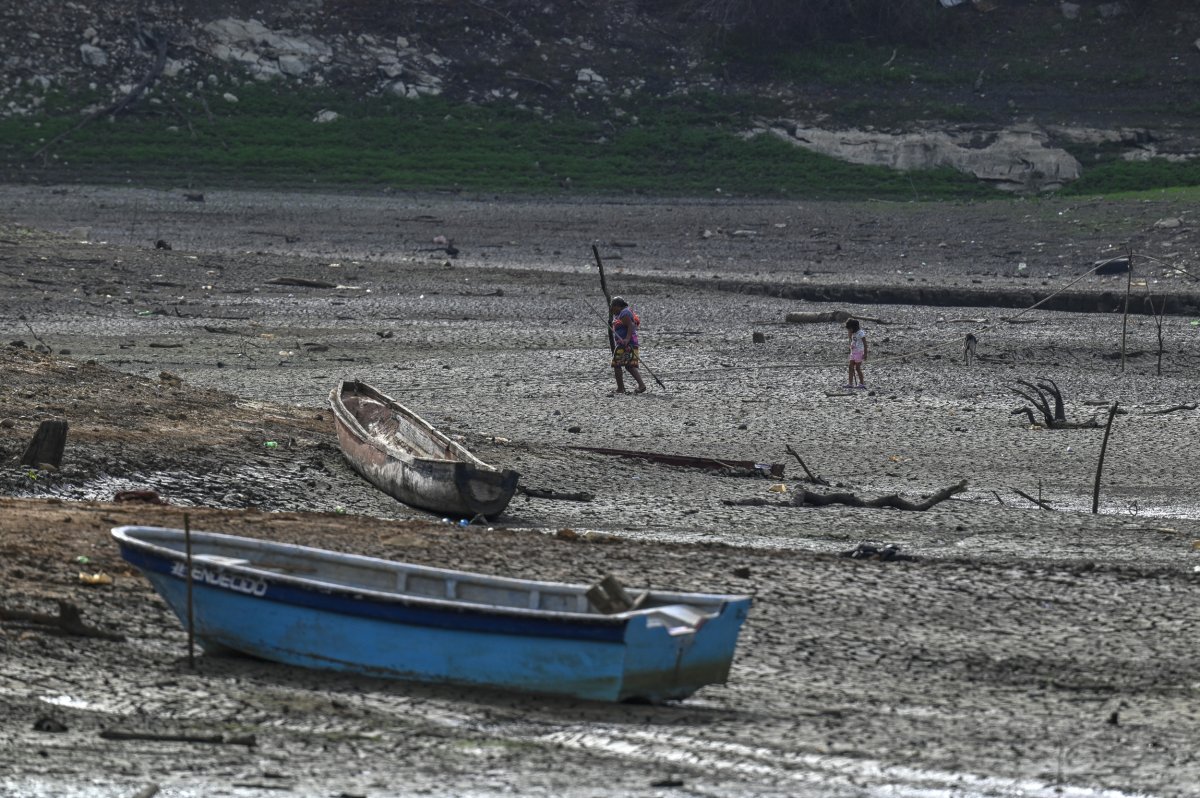
LUIS ACOSTA/AFP via Getty Images
“As a climate scientist, I can think of the weather, but it’s the cascade of consequences that convert that weather to a particular disaster or human tragedy that I find hard to envisage,” he added.
“We’re expecting the extremes to get worse,” Brierley said. “Clearly, there’s variability within it. You could imagine a hurricane season a bit like the one that was [in] the Katrina year,” wherein an estimated 3,468 Americans died, as storms’ “intensity is amplified by the intervening nearly 20 years of warming that we’ve seen.”
Rising global temperatures push more energy into the climate, contributing to greater volatility in weather systems—meaning heatwaves reach farther towards Earth’s poles and cold snaps closer to the equator. “In some respects, we were lucky [in 2023],” Brierley said of heatwaves. “I don’t think we can presume we will be as lucky next year.”
The climate scientist said he was “worried about extreme droughts,” citing one last summer that prompted a slowing of global shipping through the Panama Canal. “If the drought continues, then you might start to see a real constraint on access through the Panama Canal, which would have some quite serious economic consequences if it happened,” he said.
Droughts provide ample conditions for large wildfires, which were experienced across North America in 2023. Brierley foresaw that there could be “not just a wildfire, but a wildfire that pushes an ecosystem beyond its resilience. What I mean by that is that you start to see a forest permanently retreat and not come back,” such as an El Niño event sparking devastation in the Amazon.
Uncommon Knowledge
Newsweek is committed to challenging conventional wisdom and finding connections in the search for common ground.
Newsweek is committed to challenging conventional wisdom and finding connections in the search for common ground.
Source link























